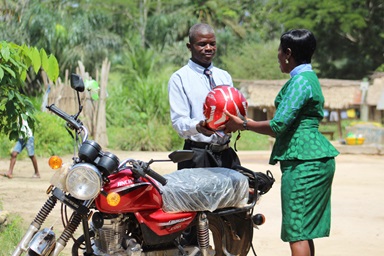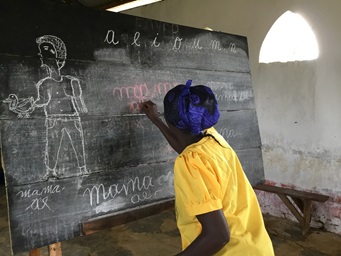The gifts of rural churches
For the foreseeable future, rural churches will remain the backbone of The United Methodist Church. They are how the church spread across the North American continent, and in some cases, they are the only presence keeping their dying communities alive. More than six in 10 of the church’s 34,000 congregations and about a quarter to a third of the church’s 8 million members in the United States are in rural settings.
Rural life offers many blessings, nearly 1,000 leaders say in a 2010 survey from the United Methodist Rural Fellowship.
Those gifts include:
- A vibrant worship life: Offering meaningful worship was identified as the greatest strength of rural congregations.
- Paying apportionments: While rural leaders say it is an increasing struggle to meet national and regional church obligations, many churches, including the four Dallas County churches, express great pride in paying 100 percent of apportionments.
- Christian mission: Just as they signified Christ’s presence with their arrival in new communities, rural churches today stand as a symbol of Christian hope in their commitment in hard times. In many rural communities, the church is the last institution standing.
The Rev. James E. Batts, a rural local pastor licensed to preach in 1956, understands why the four Arkansas churches are so important. His wife’s grandfather, Charles Edward Lawrence, helped build Hunter’s Chapel’s current building in the early 20th century.
Batts, 72, served the four churches from 1997 to 2005, and came out of retirement in 2009 to be their pastor once again. When he looks out from the pulpit of Hunter's Chapel, he says, he does not see the cracks around the door or the unpainted, 100-year-old pews. Instead, he pictures the circuit riders who once stood where he now preaches and the generations who have made this their spiritual home.
He may retire again at 75. But for now, Batts says he feels privileged to minister to such a loving congregation.
"I'd like to have a whole church full of young people, but I know that will never happen. You just do what you can do," Batts says. "I'm proud that the Lord allows me to minister here. Wherever two or three are gathered in his name, that's where God is and that's where I want to be."
Difficult decisions
Not every rural church will make it.
Although the Arkansas Annual (regional) Conference chips in $1,000 a year, the four churches of the Carthage charge are "on hospice care," says the Rev. Dennis Spence, the superintendent whose district includes the congregations. The budget for the four churches in the Carthage charge was a total of $9,565 last year, including their apportionments to the wider church.
If possible, Spence says, the conference wants to let the churches "determine when they are ready to die with dignity."
Each rural church is different, however. Many respondents to the rural fellowship survey say their congregations are relatively healthy.
Often, rural church leaders say, the denomination has fallen short in giving them the support they need for revival.
These churches worry about their long-term finances and would like greater support in repairing aging facilities. Survey respondents also express concern that the pastors appointed to their charge lack understanding of the rural context, and many say they feel alienated from the wider United Methodist connection.
The lowest ratings in the rural fellowship survey are given to the general church agencies, but rural church leaders also feel misunderstood and unappreciated by annual conferences and The United Methodist Church "as a whole."
"I am frustrated when I hear the conference talk about closing churches and consolidating congregations 'to save money' in areas where there may not be another Methodist church for 50 miles minimum," one rural leader says in the survey. "Small and rural congregations need to feel that they are important to the denomination."
Like what you're reading? Support the ministry of UM News! Your support ensures the latest denominational news, dynamic stories and informative articles will continue to connect our global community. Make a tax-deductible donation at ResourceUMC.org/GiveUMCom.





